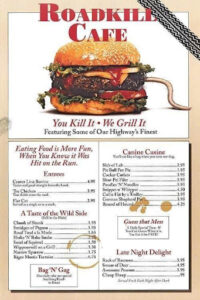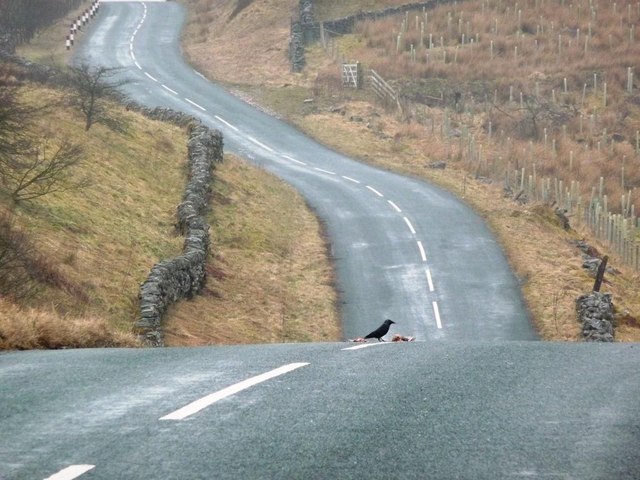By Keari Ashton-Fox
One to two million animals are hit by vehicles every year in the United States, according to the Federal Highway Administration, but it’s not a big problem around the American University campus in Washington, D.C. For some students, seeing roadkill is sad, but for others hailing from different cities across the country, it can be appetizing.
Roadkill refers to an animal that has been killed after a collision on the road and ranges from either a small bump to a serious driving hazard. Roadkill is not a problem for Pat, an American University student from Pennsylvania. Pat has seen dead deer and raccoons in the road, but it’s never a problem on campus. Ultimately, he said he would just drive around roadkill.
Students Derrick from New York and Oreamo from Florida have seen dead ducks on the side of the road, but they also said it’s not a major problem on campus.
While those interviewed on campus said they would swerve to avoid roadkill or be saddened when they see it, some were surprised that people eat roadkill. There are even recipes for the freeway meat, including “broiled prime roadkill” and “apple roadkill cake.” Cooks.com provides recipes for “Roadkill Stew,” which is made with raccoon, opossum, or squirrel carcasses.
A new Virginia bill signed into law by Governor Glenn Youngkin has changed the drivers’ rights to claim roadkill — any deer, bear, turkey or elk killed on the road can be claimed by anyone.
In an article published by the Forager Chef Alan Bergo, he explained “in my world, roadkill, in all it’s different shades is just a different way to find free food.”
Lilly and Arjen, who were interviewed while walking through the AU campus, said that they wouldn’t eat roadkill — or any other meat — no matter how it was killed.
Esther, also an AU student, said she wouldn’t eat roadkill because the animal could have an unknown disease. Students Lwen and Emerson said they would consider eating roadkill, but it depends on if it was clean.
Dead and decomposing animals host bacteria on their bodies which can expose people to all kinds of diseases, according to the Washington State Department of Health. Decomposing animals should be disposed of within 72 hours of discovery, so they don’t pollute surface water or the air.
Once a dead animal is removed, it can be disposed of by using super-heated steam to eliminate poison so it can be made into animal food, according to the North Dakota State University website.
Anyone who spots roadkill can call the DC Department of Public Works (DPW) to have it removed from public spaces such as streets and sidewalks, DC officials said. They can reach DPW by calling 311 or (202) 737-4404 or going to the website 311.dc.gov.


Photo by Creative!

Photo by Creative!



